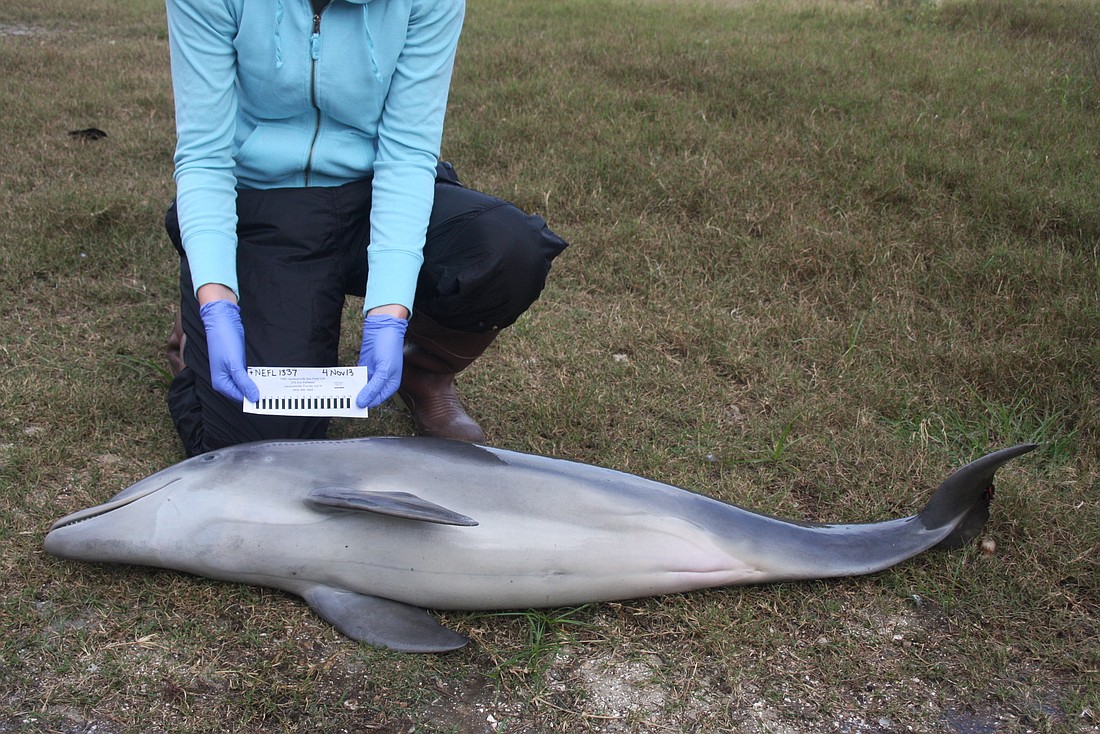- May 1, 2024
-
-
Loading

Loading

Necropsy results confirmed Monday that morbillivirus is the cause of a Nov. 4 Atlantic bottlenose dolphin stranding in Ormond Beach. Another case was confirmed at an Oct. 18 Jacksonville stranding.
These were the first of several dolphin deaths occuring in Florida the past two months..
Morbillivirus is closely related to the measles virus in humans and canine distemper in dogs, coyotes, wolves and seals. Dolphins, porpoises and whales with clinical morbillivirus infection have exhibited skin lesions, pneumonia, brain infections and secondary or latent infections.
The outbreak of the virus started in New York in late Spring and has been moving south. The first stranding in Flagler County occurred Nov. 9, with another Nov. 25. Four more strandings occurred this past weekend in Volusia County and Jacksonville. All are suspected to be from morbillivirus, but necropsy results have not been finalized.
“Not all of them are stranding because of the virus, but 90% of all animals tested did test positive,” said Blair Mase, NOAA southeast marine mammal stranding coordinator.
According to Mase, the mortality event is expected to last through April and has already recorded more than 800 dolphin strandings along the United States's east coast.
It has been 25 years since an event like this has occurred. Cetacean morbillivirus first emerged in the late 1980s, causing an epizootic, a disease that is widespread within an animal population that impacted dolphin populations along most of the Atlantic coast of the United States. The 1987-1988 bottlenose dolphin morbillivirus mortality event involved 750 dolphin deaths spanning from New Jersey to Florida.
The 2013 event has already surpassed those numbers.
Dr. Greg Bossart, senior vice president of animal health, research and conservation at Georgia Aquarium, said dolphins are the ocean’s “canaries in a coal mine” and wants people to understand ocean health, dolphin health and human health are interconnected. Bossart is also the scientific director at the Georgia Aquarium Dolphin Conservation Field Station, in Marineland. Staff at the field station has been responding to the Florida strandings in addition to analyzing tissue samples from the dead dolphins.
“The important thing to understand is that dolphins serve as a type of environmental early warning system for environmental change that has the potential to impact public health,” Bossart said. "The dolphins are becoming sick because the oceans are becoming sick. And although people try to remove themselves from natural forces, they still affect us. No matter where we live, the ocean affects everything from our ability to breathe, to our food availability and quality, to the weather; and all of that affects the economy. We need to care about ocean health because our lives depend on it.”
Bossart is on NOAA’s investigative pathology team for this event. He is also currently investigating another unusual mortality event in the Indian River Lagoon.
In addition to the mid-Atlantic and Indian River Lagoon unusual mortality events, Bossart said there is also a dolphin unusual mortality event happening now in the Gulf of Mexico. Bossart cannot recall a time when three separate UMEs affecting a single marine mammal species happened simultaneously..
“It’s not one UME that we should be necessarily concerned about,” he said. “It is the increasing combination of aquatic animal health problems over time. ... We’re also seeing this same pattern with other species around the world. Ultimately, it is in our own best interest to investigate all wildlife health patterns that could potentially affect our own well-being, since three-fourths of all emerging infectious diseases of humans are zoonotic, most originate in wildlife and their incidence is increasing.”
Since dolphins can be host to secondary infections that can be passed to people, the public is asked not to approach or touch the animals. Report all stranded marine mammals to the Florida Marine Mammal Stranding Hotline, at 888-404-3922.